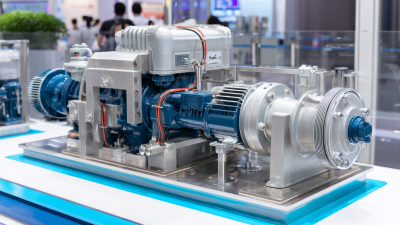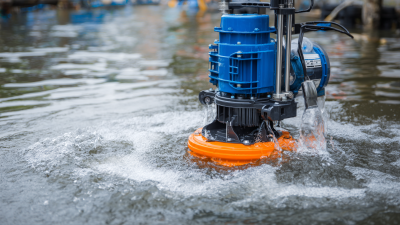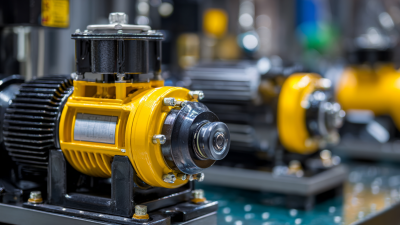What are the Key Features of Modern Irrigation Pumps?
The landscape of agriculture is rapidly evolving, with modern irrigation pumps playing a crucial role in enhancing productivity and sustainability. According to the Food and Agriculture Organization (FAO), efficient irrigation can increase crop yields by up to 50%, making the right choice of irrigation pump vital for farmers. The global market for irrigation pumps is projected to reach USD 4.6 billion by 2026, driven by advancements in technology and the increasing demand for efficient water management practices. Key features that distinguish modern irrigation pumps include energy efficiency, automated controls, and real-time monitoring capabilities. These innovations not only optimize water usage but also reduce operational costs, positioning irrigation pumps as essential tools for modern farming practices facing the challenges of climate change and water scarcity. As the industry continues to evolve, understanding the benefits and features of these systems becomes increasingly important for achieving sustainable agricultural practices.
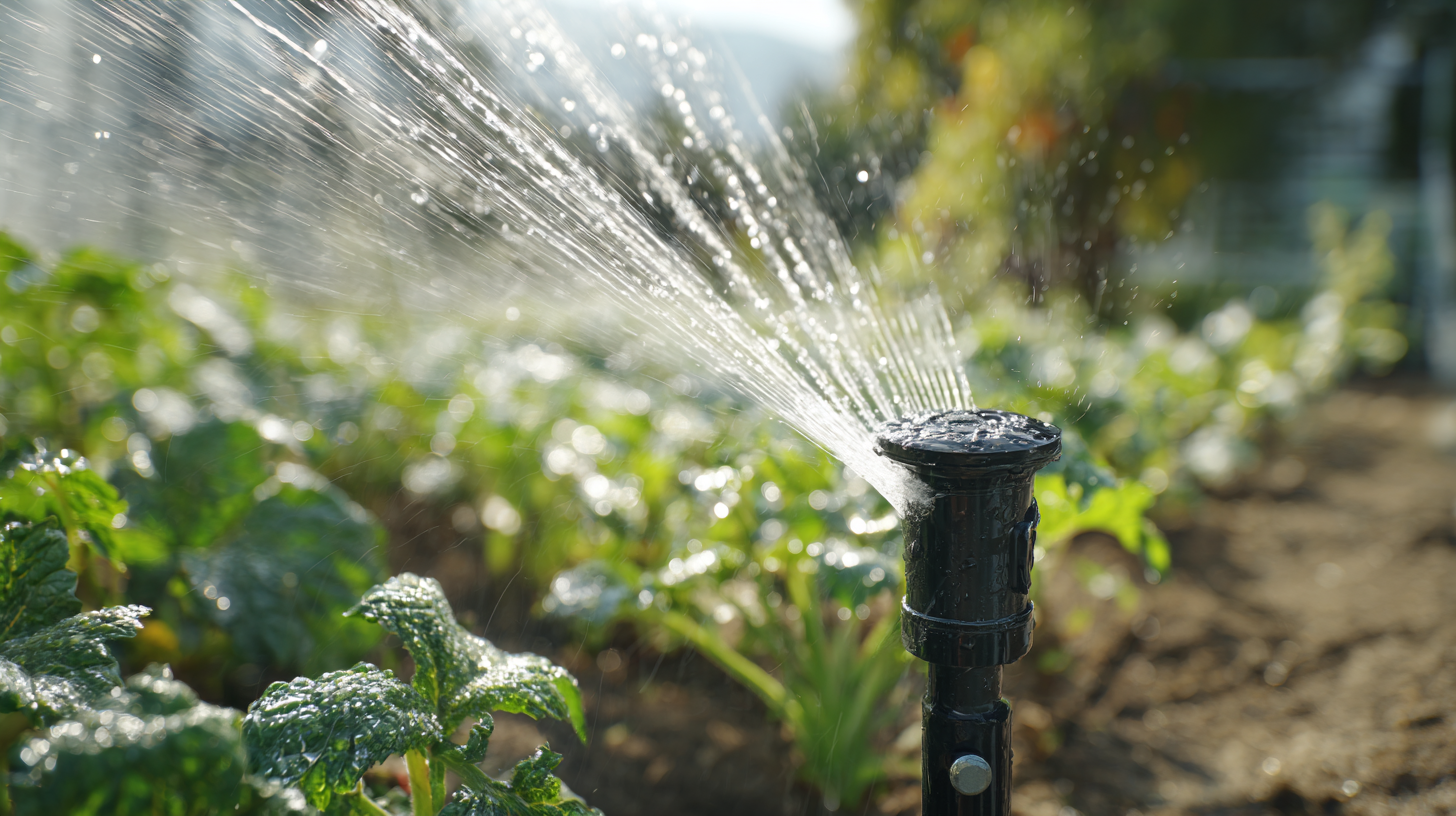
Key Innovations in Pump Technology for Efficient Water Management
Modern irrigation pumps have undergone significant innovations, enhancing their efficiency and effectiveness in water management. One key feature that stands out is the integration of smart technology, which allows for real-time monitoring and control of water usage. These advanced systems utilize sensors and data analytics to optimize pump performance, ensuring that water is delivered precisely where and when it is needed. This not only conserves water but also reduces energy costs associated with over-pumping.
Another notable innovation is the development of variable frequency drives (VFDs). VFDs enable pumps to adjust their speed based on real-time demand, leading to greater efficiency in water distribution. This adaptability can significantly reduce wear and tear on equipment, prolonging lifespan and minimizing maintenance costs. Furthermore, modern pumps are designed with improved materials and technologies that enhance their durability and resistance to environmental factors, making them more reliable in diverse conditions. These innovations collectively contribute to a more sustainable and efficient approach to irrigation, addressing the challenges posed by climate change and water scarcity.
Key Features of Modern Irrigation Pumps
Energy Efficiency Standards in Modern Irrigation Pumps
Energy efficiency is a crucial aspect of modern irrigation pumps, as it directly impacts both operational costs and environmental sustainability. Manufacturers are increasingly adopting advanced technologies to meet strict energy efficiency standards set by regulatory authorities. These standards often involve the use of high-efficiency motors, variable frequency drives, and smart control systems that optimize pump performance based on real-time data. By incorporating these features, modern irrigation pumps minimize energy consumption while delivering the necessary flow rates to maintain agricultural productivity.
In addition, energy-efficient irrigation pumps contribute to reduced greenhouse gas emissions, aligning with global efforts to combat climate change. Many irrigation systems are now designed to integrate renewable energy sources, such as solar power, further enhancing their sustainability. As farmers seek to reduce their carbon footprint and energy expenses, the demand for pumps that adhere to these stringent efficiency standards continues to grow. Consequently, investing in energy-efficient irrigation pumps not only supports agricultural operations but also promotes a more sustainable future for farming practices.
What are the Key Features of Modern Irrigation Pumps? - Energy Efficiency Standards in Modern Irrigation Pumps
| Feature | Description | Efficiency Rating | Power Source | Use Case |
|---|---|---|---|---|
| Variable Speed Control | Allows adjustment of pump speed based on demand, improving efficiency. | Up to 85% Efficiency | Electric, Diesel | Large scale agriculture |
| Automatic Sensors | Monitors soil moisture and adjusts pump operations accordingly. | High Efficiency | Electric | Precision agriculture |
| Energy Recovery Systems | Recovers and reuses energy from the pump while operating. | 90% Efficiency | Hydraulic, Electric | Commercial irrigation |
| Remote Monitoring | Enables operators to track and control pumps over the internet. | Standard Efficiency | Electric | Smart farming |
| Durable Materials | Constructed from corrosion-resistant materials for longevity. | N/A | Various | All irrigation applications |
Versatility and Adaptability of Contemporary Pump Designs
Modern irrigation pumps are designed with versatility and adaptability in mind, catering to diverse agricultural requirements. These contemporary pump systems can handle various types of water sources, including wells, rivers, and reservoirs, making them suitable for different environments. Their modular designs allow for easy configuration and reconfiguration, enabling farmers to adjust their irrigation strategies based on crop needs, soil conditions, and seasonal variations. This flexibility ensures optimal water management, which is crucial for maximizing agricultural output.
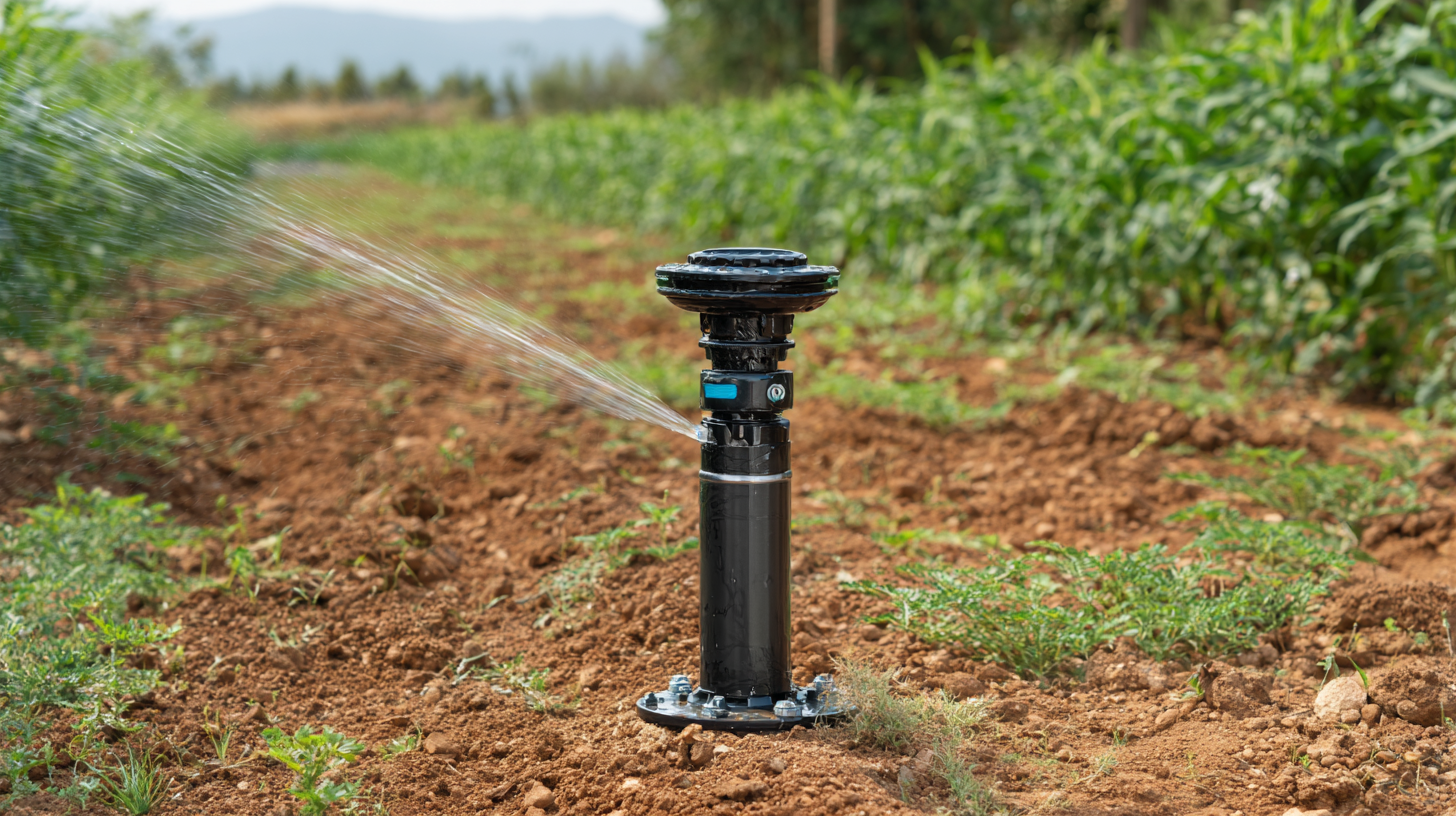
In addition to their adaptability to different water sources, modern irrigation pumps often come equipped with advanced control technologies. These systems can integrate with smart farming practices, allowing for real-time monitoring and automated operation. Features such as variable speed drives enable pumps to adjust their performance based on demand, resulting in efficient energy use and reduced operational costs. Furthermore, contemporary pumps are often constructed with durable materials that withstand various environmental conditions, ensuring longevity and reliability in the field. This combination of versatility and technology represents a significant advancement in irrigation practices, empowering farmers to enhance productivity sustainably.
Smart Irrigation Pumps: Integration with IoT and Automation
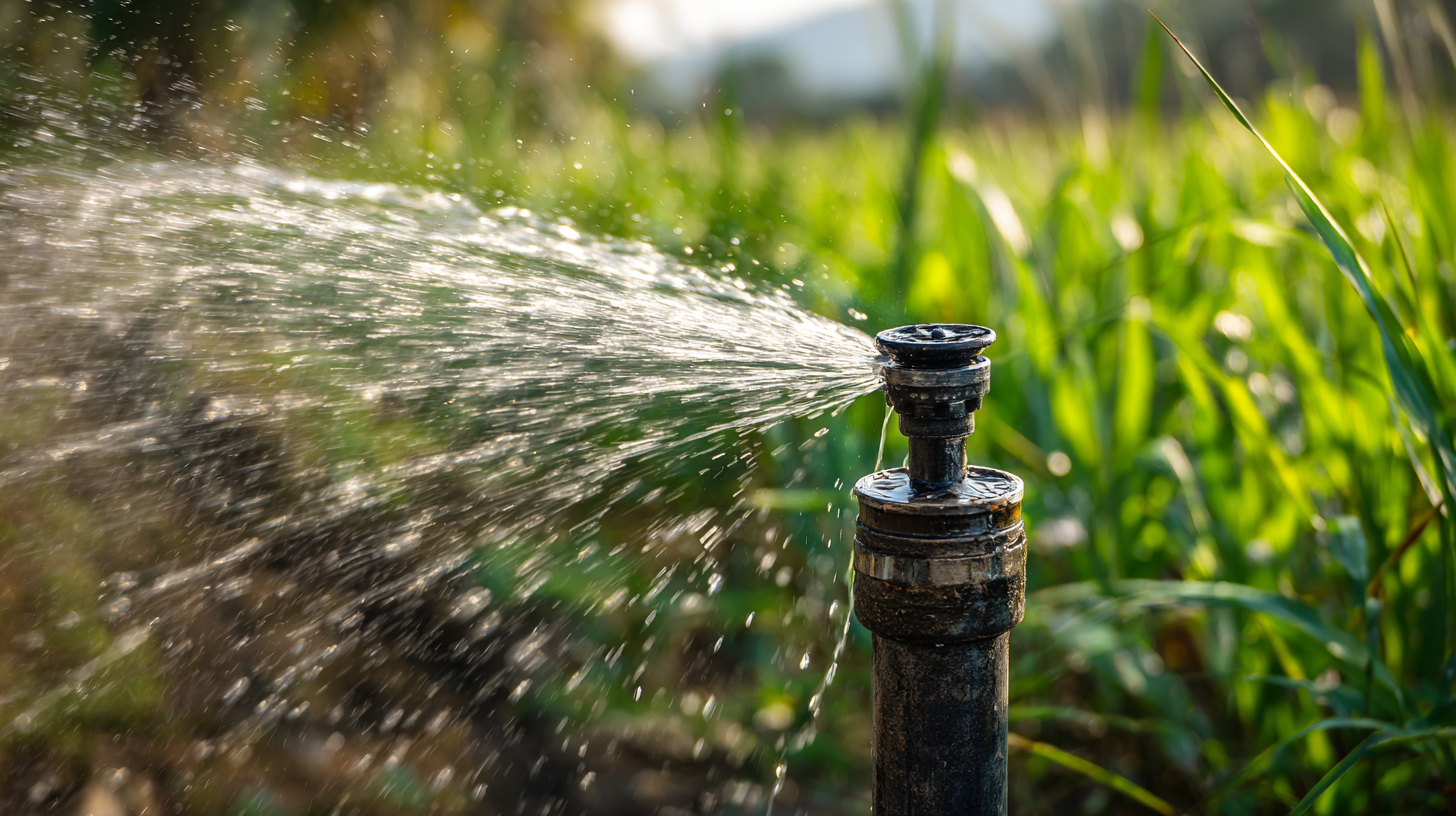 Smart irrigation pumps represent a significant leap forward in modern agricultural technology, primarily driven by the integration of Internet of Things (IoT) devices and automation. According to a report by Research and Markets, the global smart irrigation market is projected to reach $2.3 billion by 2025, highlighting the growing shift towards intelligent water management systems. By utilizing real-time data from sensors, these pumps can optimize water usage, significantly reducing waste while ensuring crops receive the exact amount of water they need.
Smart irrigation pumps represent a significant leap forward in modern agricultural technology, primarily driven by the integration of Internet of Things (IoT) devices and automation. According to a report by Research and Markets, the global smart irrigation market is projected to reach $2.3 billion by 2025, highlighting the growing shift towards intelligent water management systems. By utilizing real-time data from sensors, these pumps can optimize water usage, significantly reducing waste while ensuring crops receive the exact amount of water they need.
The automation of irrigation processes through these advanced pumps also leads to improved efficiency in agricultural practices. A study by Agritech Innovation found that farms employing smart irrigation solutions could reduce water consumption by as much as 30%, while simultaneously increasing crop yields by up to 20%. This integration allows farmers to monitor soil moisture levels, weather forecasts, and crop health remotely, enabling timely and informed decisions that enhance productivity. As technology continues to evolve, the role of smart irrigation pumps will become increasingly vital in sustainable agricultural practices, making them essential tools in combating the growing challenges of water scarcity and food security.
Maintenance and Durability Features of Current Irrigation Pump Models
Modern irrigation pumps have evolved significantly to meet the demands of efficient water management in agriculture. One of the critical aspects of current pump models is their maintenance and durability features. According to a report by the Agricultural Irrigation Technology Association, up to 60% of pump failures are linked to inadequate maintenance practices. Therefore, many manufacturers now integrate self-diagnostic tools and sensors that alert users to potential issues before they escalate, significantly reducing downtime.
Additionally, advanced materials and engineering techniques have enhanced the lifespan of irrigation pumps. Recent studies indicate that pumps constructed from corrosion-resistant alloys and composite materials can last up to 30% longer than traditional models. This increased durability not only reduces replacement costs but also minimizes the environmental impact associated with manufacturing and disposing of pumps. With regular maintenance and the use of durable materials, farmers can ensure their irrigation systems operate efficiently, ultimately contributing to more sustainable agricultural practices.

